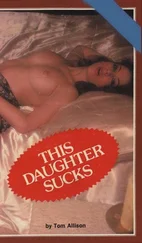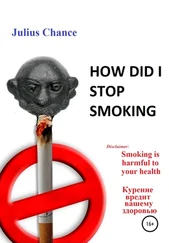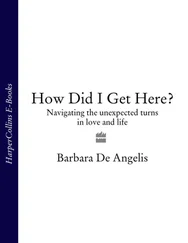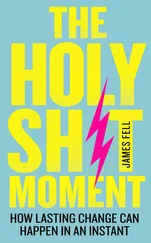Having attended the birth of my own three sons, I realise how ineffectual I was, despite spending months in antenatal classes being taught that whilst in the throes of labour my wife would really appreciate having me in her face telling her to breathe. I am not suggesting men should not participate in some way, and I am not belittling the wonderfully emotional experience, but, really, has any woman ever forgotten to breathe during childbirth? I can’t imagine there are any maternity wards around the world where expectant fathers are being handed babies by a sad-looking nurse and finding their joy of fatherhood tarnished by the nurse saying, ‘You have a beautiful new child, but I’m afraid we lost your wife. She simply forgot to breathe and because we were all busy at the other end we never noticed. If only you had been there to remind her.’
Anyway, in the 1960s men didn’t have to put themselves through all that. They just waited until mother and baby were prepared and presented.
The man to whom I was presented, my father, Edward Ernest Bishop, at the time worked on the tugs in the Liverpool docks, guiding the numerous ships that arrived in one of Europe’s busiest ports. Liverpool in the 1960s was said to be the place where it was all happening, but for my mum and dad the swinging sixties basically involved getting married and having kids.
My parents had grown up around the corner from each other on a council estate in Huyton and had not bothered with anyone else from the moment they became childhood sweethearts. My mum still has a birthday card that my dad gave her for her fifteenth birthday, which I think is a beautiful thing and something I know won’t happen in the future, as the practice of writing in cards is coming to an end. I can’t imagine young girls of today keeping text messages or Facebook posts sent to them by their boyfriend. Having said that, for the sake of the planet, the giant padded cards with teddy bears and love hearts on the front bought by the teenage boys of my generation in an attempt to get a grope on Valentine’s Day are probably best left as things of the past in order to conserve the rainforests – although the quilted fronts could always be recycled as very comfortable beds.
My parents were married as teenagers and, shortly afterwards, started having children. That seemed to be the way with everybody when I was a child – I didn’t know anybody whose parents hadn’t done the same thing. I remember being at school when I was 13 years of age and my mate, Mark, telling me that his dad was having his 60th birthday party. I fell off my chair laughing at the image of his father being the age of what I considered a granddad. My dad was young enough for me to play in the same Sunday league side as him when I was 16, although I was under strict instructions to call him Ernie. Apparently shouting, ‘Dad, pass!’ was not considered cool in the Sunday league circles of the early eighties.
Having young parents had a massive impact on the way I saw the world, and perhaps was the driving force behind me wanting to have children myself very shortly after I got married. Or, to be fair, that may well be the result of me being a better shot than I anticipated.
When I entered the world, my dad was 24 and my mum was 23. They had four children, all born in the month of November. All my life I thought the fact that we were born in November was a coincidence; it wasn’t until I was married myself and I became aware of the rhythms of marriage that I realised the month of November comes nine months after Valentine’s Day. If you’re married, you’ll know what I mean; if you’re not, you will do one day.
The first eight months of my life were spent living a few doors away from the hospital on Mill Road in a house that my dad had bought from a man in a pub for £50. You could do that sort of thing in the 1960s. The house was about a mile from the city centre and proved to be perfectly placed, as it allowed my parents the opportunity to walk to the hospital to see my sister Carol, in between looking after the rest of us.
As Carol’s coeliac disease meant she couldn’t digest gluten, throughout our childhood my mum was constantly baking separate things for her. This meant our house very often had that warm smell of baking – although if you have ever eaten gluten-free food you will know the smell is a lot better than the taste. Nice-smelling cardboard is still cardboard.
I don’t have any memory of that first house, and it is no longer there. Someone came from the council and declared it unfit for human habitation, along with many others, as the city council progressed with the slum-clearing project which changed much of the centre of Liverpool in the 1960s. The declaration was upsetting for my dad, as he had just decorated, although I am sure the rats and lack of adequate sanitation had more to do with the council’s decision than his ability to hang wallpaper.
As a result of the clearing of the slum areas, various Scouse colonies sprang up as families were moved out to places such as Skelmersdale, Kirkby, Speke and Runcorn. Getting out of Liverpool was not something my mum and dad would ever have considered; it was all they had both ever known, and Carol was still being treated in the hospital. The council offered various alternatives and, like most decisions in parenthood, my mum and dad did what they thought was best for us.
They chose to move to Winsford, out in Cheshire, the option that was the furthest from the centre of Liverpool – if not in miles, then certainly in character. Winsford had been an old market town, but now had emerging council estates that needed to be populated by people ready to work in the factories of the local, rapidly developing industrial estate.
My dad went for an interview in a cable company called ICL and received a letter saying he had a job at the weekly wage of £21.60. This was a staggering amount at the time, when he was getting £9 a week on the building sites he had moved on to after too many falls into the Mersey had convinced him that tugs were not the future. So, without further ado, we moved. When the removal van arrived, such was the exodus from Liverpool that it was already half-full with furniture from another family, the Roberts, who actually moved into the same block as us in Severn Walk on the Crook Lane estate.
When my dad received his first week’s wages, he was paid £12.60.
Yes, thanks to a typing error, my mum and dad had made the decision to move all the way out to Winsford: a simple clerical mistake was responsible for where I was to spend my formative years. However, I have to say I am glad the lady who typed it (it was 1967 – men didn’t type letters, as they were busy doing man-things like fixing washing machines or carrying heavy stuff) made the mistake, because I cannot think of a better place to have grown up.
If you were a child in the 1960s and somebody showed you the council estate where I lived, you could not have imagined a finer location in the world. Rows of terraced houses that were built out of white brick reflected the sun and made everything seem bright. We lived at 9, Severn Walk, which I always thought was a great address as it had two numbers in it, until I realised the road was actually named after a river. We spent the first ten years of my life at this address. Coming from a slum area within Liverpool, it was an exciting place to be, and my mum even today comments about the joy of discovering such modern things as central heating, a hatch from the kitchen into the living room and, the biggest thing of all, an inside toilet downstairs . Opulence beyond belief to live in a house where someone could be on the toilet upstairs and someone on the toilet downstairs, at the same time, and nobody had to put their coat on to go outside.
When I started to write this book I wanted to go back to the estate and have a look, so, six months ago, I went for a walk there. It was night-time, and I sat on the wall and remembered all the times we had had on the estate, both good and bad, and I will always be grateful for the childhood I had there.
Читать дальше











